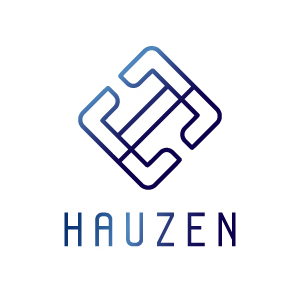In the pioneering decision of Re Gatecoin Limited [2023] HKCFI 91, the Hong Kong High Court made an important first step in recognising the legal status of cryptocurrencies. The decision was handed down on 31 March 2023 and established that cryptocurrency is “property” and is capable of being held on trust.
Gatecoin is a Hong Kong company that operated a cryptocurrency exchange platform. The Company was wound up by the Court on 13 March 2019. Under Hong Kong law, s.197 of Companies (Winding Up and Miscellaneous Provisions) Ordinance (Cap. 32) imposes an obligation on liquidators to take into custody all “property” upon a winding-up order. As such, the liquidators sought for the court’s directions on, amongst other things, the characterisation of cryptocurrencies. The question was whether cryptocurrency fell within the meaning of “property”.
In Hong Kong, s.3 of the Interpretation and General Clauses Ordinance (Cap. 1) (“ICGO”) defines “property” as “(a) money, goods, choses in action and land; and (b) obligations, easements and every description of estate, interest and profit, present or future, vested or contingent, arising out of or incident to property as defined in paragraph (a) of this definition”. The Honourable Madam Justice Linda Chan noted in her decision that the definition under s.3 of IGCO is a wide and inclusive one, and so she drew upon legal analysis on the question from other jurisdictions – turning to the common law to arrive at her decision.
The Court then turned to England and Wales and followed the principles in National Provincial Bank v Ainsworth [1965] AC 1175, where Lord Wilberforce ruled that for something to amount to “property” it must be (i) definable, (ii) identifiable by third parties, (iii) capable in their nature of assumption by third parties, and (iv) have some degree of permanence or stability. Further, the UK Jurisdiction Taskforce published a Legal Statement on Cryptoassets and Smart Contracts pointed out that “the courts have found no difficulty in treating novel kinds of intangible assets as property, both in particular statutory contexts and in general. On that basis, while a crypto asset might not be a thing in action… but does not mean that it cannot be treated as property.”
In the New Zealand case of Ruscoe v Cryptopia, which Linda Chan J. refers to as “the most detailed analysis on the issue”, Gendall J. concluded that cryptocurrency satisfies the four criteria for “property” and is a type of intangible property in that:
- It is definable, as the public key allocated to a cryptocurrency wallet is readily identifiable, sufficiently distinct and capable of being allocated uniquely to an individual accountholder.
- It is identifiable by third parties in that only the holder of a private key is able to access and transfer the cryptocurrency from one wallet to another.
- It is capable of assumption by third parties in that it can be and is the subject of active trading markets where (a) the rights of the owner in that property are respected, and (b) it is potentially desirable to third parties such that they want themselves to obtain ownership of it.
- It has some degree of permanence or stability as the entire life history of a cryptocurrency is available on the blockchain.
It is also important to note that the courts in Hong Kong have previously granted interlocutory proprietary injunctions over cryptocurrencies without any party suggesting that cryptocurrencies are not “property” – for example Nico Constantijin Antonius Samara v Stive Jean-Paul Dan [2021] HKCFI 1078; Yan Yu Ying v Leung Wing Hei [2021] HKCFI 3160; and Huobi Asia Limited & Anor v Chen Boliang & Anor [2020] HKCFI 2750.
Following the reasoning in various common law jurisdictions including Hong Kong, England and Wales, the BVI, Singapore, Canada, the United States, Australia and New Zealand, Linda Chan J. noted that “the preponderance of jurisprudence recognises the proprietary nature of cryptocurrencies”, and it is appropriate to conclude that cryptocurrency is “property” in Hong Kong.
This landmark decision puts cryptocurrency on par with other intangible assets like stocks and bonds and brings the Hong Kong courts in line with other common law jurisdictions. The vision of Hong Kong being an international digital asset hub continues to be a promising one.

For further information, please contact:
Christie Liu, Hauzen
christieliu@hauzen.hk




